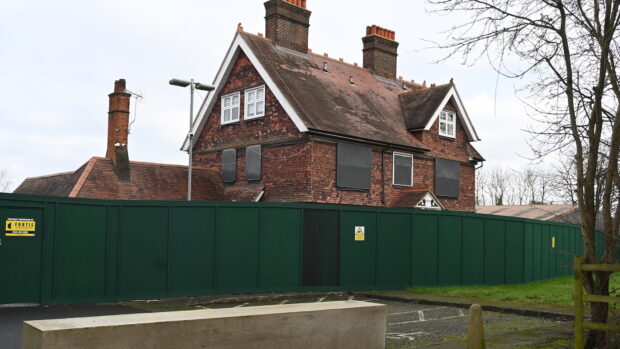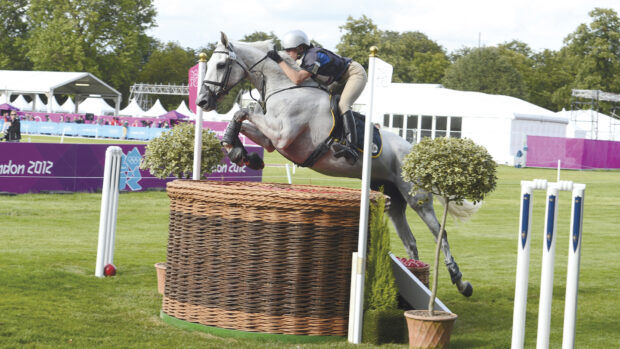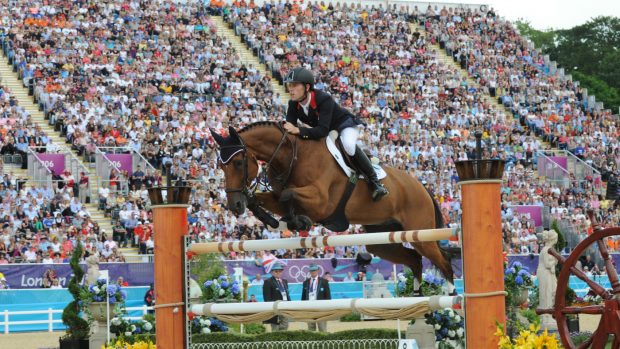A £1.6M equestrian facility created as part of the London 2012 Olympic legacy is facing an uncertain future after just 11 years.
The Royal Greenwich Equestrian Centre opened in 2013, offering training, part-time and degree courses run by Hadlow College. It featured arenas, a hydrotherapy pool, mechanical horse, treadmill, cold-water spa, paddocks, stabling for around 20 and more.
Funding for the centre came from a direct investment by Sport England, plus financial backing from British Equestrian (BEF), Hadlow College, Greenwich Council, the Olympic Development Authority, 2012 organisers LOCOG and the Mayor’s Fund for London.
H&H reported at the time that the foundation courses were “well booked” and that 40% of students were local residents. It also offered riding lessons to local people; a condition of its planning permission was to provide a minimum of 82 hours of community riding per week.
But as H&H went to press on Monday (5 August) a question mark hovered over its future. Hadlow College entered educational administration in 2019 and North Kent took over running its equestrian courses, among others, which are based at the Hadlow campus in Kent. On 1 August, a spokesperson for North Kent told H&H that it is no longer using the facilities at Greenwich.
A spokesperson for the local council, the Royal Borough of Greenwich, told H&H that “the council has made no decisions yet”.
Tao Baker was among those to enjoy the facility at its heights and is urgently trying to save the venue, with the intention of running it as a community facility.
Ms Baker told H&H the facilities are “fantastic”. She added that it gave young people exposure to the possibilities of careers in the equine world and had opportunities for adults wanting to further their equestrian knowledge. There were horse rehabilitation facilities, plus very popular riding lessons.
“A lot of people in the local community loved it, because the facilities were so good and the instruction was fantastic – no two lessons were ever the same,” she said.
In recent years, services offered to the public at the facility have reduced, the riding school has gone and the horses were removed from living at the site. The college continues to offer its equestrian courses at its Hadlow campus.
Ms Baker, a horse owner with a background in banking, is concerned that the centre will be lost forever. She wants to run the equestrian centre as a business to serve the community, focusing on promoting physical activity, supporting mental health and fostering inclusivity. But she said there has been a lack of engagement from the council, which she says is “beyond disappointing”.
She has challenged suggestions that the venue is not suitable for horses to live at, explaining that the facilities are “beautiful” and that there is turnout plus on-site accommodation – noting that it was purpose-built as an equestrian centre as part of its original planning permission.
“The Greenwich Equestrian Centre can become a model facility for the city, demonstrating how sports and recreational activities can drive social inclusion, mental health support, and physical wellbeing,” she said.
“The 2024 Olympics have shown us the power of sports to unite and inspire. The centre, with its roots in the London 2012 legacy, is a testament to this, offering our community a space to engage in equestrian activities and fostering a spirit of health and inclusivity.
“If the centre were to close, our community would lose a vital piece of our Olympic legacy and a unique sanctuary where people connect with the beauty and grace of horses. Some children might never get to experience the joy and therapeutic benefits of interacting with these magnificent creatures, which has inspired many and promoted well-being and community spirit.”
BEF head of participation Mandana Mehran Pour told H&H that the centre “has been a vital resource for promoting equestrian sports and providing accessible activities to the local community”.
“As one of the few riding schools in an urban setting, the centre delivers substantial health and wellbeing benefits to local residents, offering access to equestrian activities that enhance physical and mental wellbeing.
“Given British Equestrian’s commitment to creating a more inclusive and accessible sport under our diversity and inclusion strategy, Horses for All, a centre like this could significantly impact our efforts to ensure more people can benefit from the horse-human bond,” she said.
- To stay up to date with all the breaking news throughout the Olympic Games, Burghley, HOYS and more, subscribe to the Horse & Hound website
You might also be interested in:

Subscribe to Horse & Hound magazine today – and enjoy unlimited website access all year round

New legacy equestrian centre opens in Greenwich
A new equestrian centre set up as an Olympic legacy is now up and running near the site of the

New equestrian centre to form London’s 2012 Olympic legacy
A £250,000 investment is being used to set up a new equestrian training and rehabilitation centre on the border between




